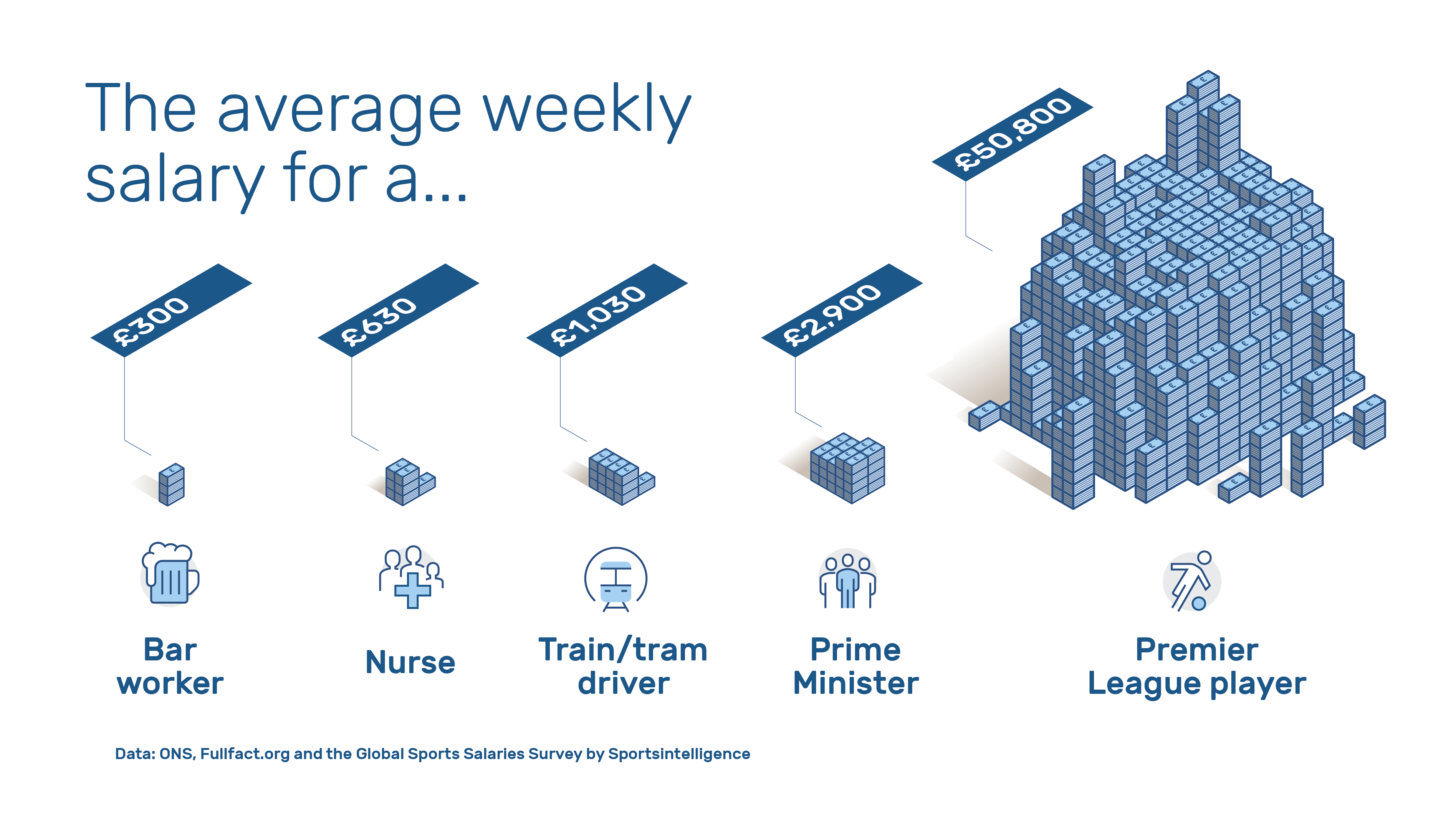What is supply and demand?
Supply and demand is a bit like an economist’s version of the law of gravity. It decides how much everything costs: a cup of coffee, a house and even your salary. In this case, supply is the number of players talented enough to play in the top leagues such as the Premier League. Demand is the number of teams who want to buy the players.

But why is Messi so well paid?
While there are plenty of football players, talents such as Messi are in short supply. In fact, only 180 of the 1.5 million players in organised English youth football will make it as Premier League pros.
The demand for talented football players is high as they increase the team’s chances of winning titles. Successful teams make more money from broadcasting rights, merchandise and ticket sales. Clubs have to compete for the best players by offering the highest wages. If a particular club was to offer lower wages, other clubs would simply outbid them.
Playing in the lower leagues pays less because there’s a higher supply of footballers. Demand for such players is also lower as they bring in less revenue for the club.
In 2014–15, the average League 1 player was paid just below £70,000 compared with an average wage of £1.7 million for a Premier League player.
Bank of England's explainer on why footballers are paid so much?
Why have footballers’ wages increased so much?
Players are being paid increasingly high wages because the clubs are making more money than ever. As a result of globalisation and technological advances such as the pay TV market, football has become more popular and so more profitable. The rights for the first seasons of the Premier League in 1992–97 sold for less than £200 million. The TV rights for 2016–19 are, in comparison, worth more than £5 billion.
If people lost interest in football, clubs would not be able to make such high profits. The demand for players would drop and so would their wages.

How does this apply to the rest of the economy?
Supply and demand affect all of our salaries. For some jobs, many people have the right skills, and so companies don’t need to compete for workers. They can hire people without offering high wages.
A job will also be low-paid if the role does not earn much money for the firm, making a higher wage unprofitable.
For other jobs, finding suitable people is hard. Employers have to compete for the best workers. As with professional footballers, they are willing to pay a lot if the job allows the company to make more money.
